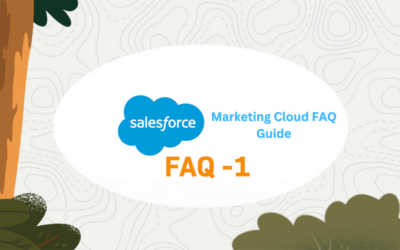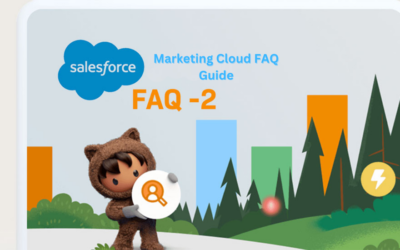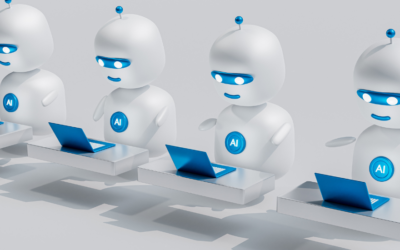In the ever-evolving landscape of business technology, harnessing the power of Salesforce Service Cloud has become pivotal in providing exceptional customer service, streamlining support operations, and maximizing customer satisfaction. Achieving these objectives hinges upon the expertise of Salesforce Service Cloud Consultants and Architects who possess a profound understanding of this robust platform. As organizations increasingly rely on Salesforce to optimize their customer service strategies, the demand for qualified professionals in this domain has never been higher. However, identifying the right candidate among the multitude can be a formidable challenge.
To assist organizations in this quest, we have assembled an extensive compendium of 20 technical interview questions with detailed answers designed to assess the proficiency of Salesforce Service Cloud Consultants and Architects. These questions traverse the realm of Salesforce customization, integration, development, and best practices. With the knowledge gleaned from these responses, hiring managers can confidently pinpoint individuals with the requisite skills to propel their Salesforce Service Cloud initiatives to new heights. If you need assistance with Salesforce CRM setup and optimization, companies like CRM Force can provide valuable expertise and support.
1- How can you customize Salesforce Communities to align with an organization’s branding and user experience requirements?
Answer: Salesforce Communities can be customized through themes, templates, and branding options to match an organization’s unique identity and user experience goals.
2- What are Data Categories in Salesforce Knowledge, and how do they facilitate content organization?
Answer: Data Categories are used to classify and organize knowledge articles, making it easier for support agents to find and share relevant information with customers.
3- What is Lightning Flow, and how can it be used to automate complex processes in Salesforce Service Cloud?
Answer: Lightning Flow is a powerful automation tool that allows you to create guided, interactive experiences and automate complex business processes without code.
4- What is a Salesforce Trigger, and when would you use it?
Answer: A Salesforce Trigger is a piece of code that automatically executes when a specific event occurs in Salesforce, such as a record update or insertion. You would use triggers to perform custom actions, validations, or updates based on specific criteria.
5- Difference between Workflow Rules and Process Builder in Salesforce.?
Answer: Workflow Rules automate standard internal procedures to save time across your org. Process Builder is more versatile, supporting complex processes with more conditions, actions, and automation capabilities.
6- What is a Time-Dependent Workflow Action in Salesforce, and how do you set it up?
Answer: A Time-Dependent Workflow Action is a workflow action (e.g., email alert or task) that is triggered after a specified period following a record update. You set it up by defining a time trigger within a workflow rule.
7- What is the purpose of a Salesforce Apex Trigger, and how is it different from a Workflow Rule?
Answer: A Salesforce Apex Trigger is a piece of code that runs before or after records are inserted, updated, or deleted. Unlike Workflow Rules, triggers offer more flexibility and can handle complex logic and interactions.
8- What is the difference between a Before Trigger and an After Trigger in Salesforce?
Answer: A Before Trigger executes before records are saved to the database and can be used to validate data or make changes before the save operation. An After Trigger runs after records are saved and can be used for post-save operations.
9- What is Visualforce in Salesforce, and when would you use it?
Answer: Visualforce is a framework for creating custom user interfaces in Salesforce Classic. You would use it to develop custom pages or components when standard layouts and Lightning components don’t meet your requirements.
10- Explain the concept of Lightning Components in Salesforce and how they differ from Visualforce pages.
Answer: Lightning Components are building blocks for creating dynamic web apps in Salesforce Lightning Experience. They offer a more modern and responsive user interface compared to Visualforce pages.
11- How can you make Lightning Components available in Lightning App Builder for customization by non-developers?
Answer: Lightning Components can be made available in Lightning App Builder by implementing the Lightning App Page interface and exposing them as Lightning App Pages.
12- What is the purpose of Outbound Messages in Salesforce integration, and how do you set them up?
Answer: Outbound Messages are used to send notifications to external systems when specific events occur in Salesforce. You set them up by defining a workflow rule that triggers the Outbound Message.
13- What is the DataLoader.io tool, and how can it be used for data migration in Salesforce?
Answer: DataLoader.io is a third-party data migration tool that simplifies data import and export tasks in Salesforce, offering a user-friendly interface and advanced data manipulation features.
14- Why is unit testing important in Salesforce Apex development, and how can you create unit tests?
Answer: Unit testing ensures that Apex code functions correctly and maintains system stability. Unit tests can be created by developers to validate the behavior of their code.
15- What is the System.debug() method in Salesforce, and how can it help in debugging Apex code?
Answer: System.debug() is used to log messages in the debug log, allowing developers to track the execution flow, variable values, and errors in their Apex code during testing.
16- What are Lightning Flows in Salesforce, and how do they differ from traditional Workflow Rules?
Answer: Lightning Flows are automation tools that allow you to build interactive, guided processes. Unlike traditional Workflow Rules, Flows provide greater flexibility and interactivity.
17- What is Live Agent in Salesforce Service Cloud, and how does it enable real-time customer support?
Answer: Live Agent is a real-time chat feature in Salesforce Service Cloud that allows customers to interact with support agents in real-time, improving response times and customer satisfaction.
18- What are Macros in Salesforce Service Cloud, and how can they streamline repetitive tasks for support agents?
Answer: Macros are a set of predefined actions that support agents can use to automate repetitive tasks and quickly update case records.
19- Explain the process of integrating Salesforce Service Cloud with an external system using RESTful APIs.
Answer: To integrate Salesforce Service Cloud with an external system via RESTful APIs, you need to create an External Data Source, define the required authentication settings, and then create custom Apex classes and triggers to handle data synchronization. RESTful services can be invoked using HTTP methods (GET, POST, PUT, DELETE) to exchange data between systems.
20- What are Lightning Web Components (LWC), and how do they differ from Aura Components in Salesforce?
Answer: Lightning Web Components (LWC) are a new development model for building Lightning components in Salesforce. They are built on modern web standards using JavaScript and HTML, making them faster and more efficient than Aura Components. LWC promotes a better developer experience and improved performance.
Conclusion
In conclusion, hyper-competitive business landscape, providing exceptional customer service has never been more crucial. Salesforce Service Cloud has emerged as a linchpin for organizations aiming to stay ahead of the curve. The individuals who specialize in Salesforce Service Cloud bring a wealth of knowledge and expertise to the table, enabling organizations to build robust customer service solutions, automate processes, and enhance overall customer experiences.
The depth of understanding exhibited by Salesforce Service Cloud Consultants or Architects in areas such as Apex development, data migration, Lightning components, and integration with external systems can be a game-changer for any organization’s customer service operations. With these insights, organizations can navigate the complexities of Salesforce Service Cloud confidently, knowing they have the right experts in their corner. In a world where customer satisfaction and loyalty are paramount, the role of a Salesforce Service Cloud Consultant or Architect cannot be overstated. Their expertise is the bridge between organizations and the exceptional customer service that sets them apart in today’s competitive marketplace. To learn more about how CRM Force can assist you in recruiting top CRM talent and optimizing your CRM strategies for successful drip campaigns, contact us today. Together, let’s maximize your customer engagement Contact Us today.





